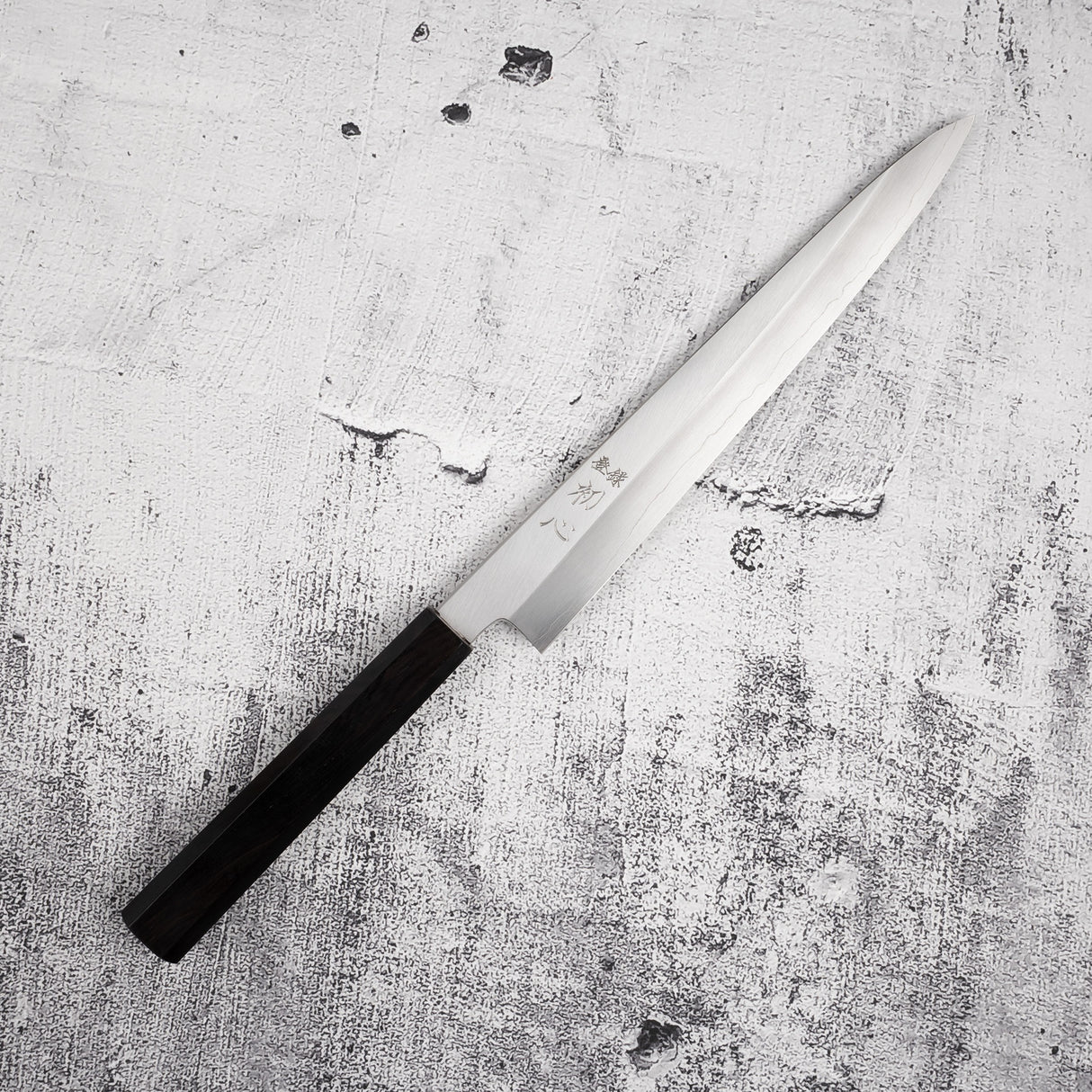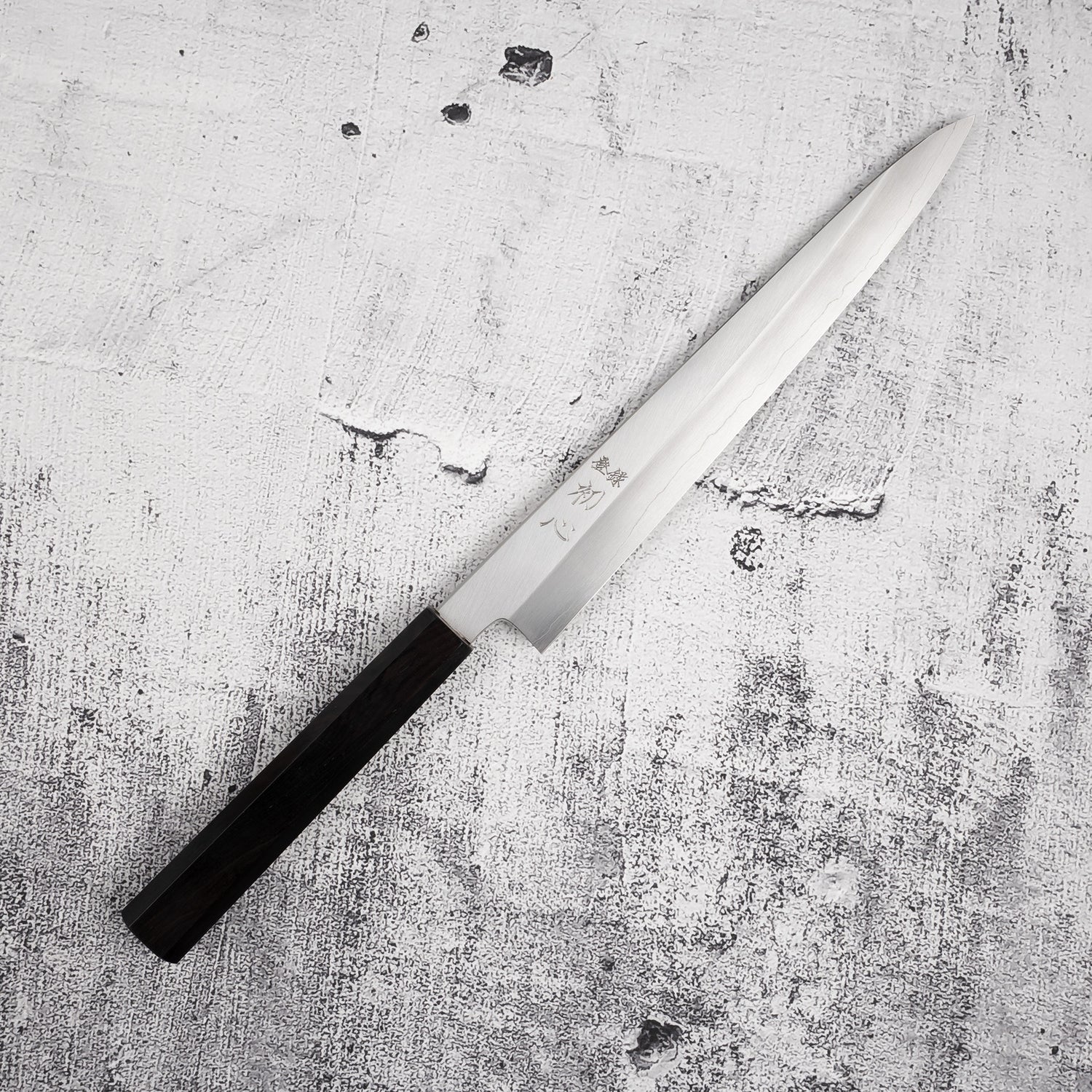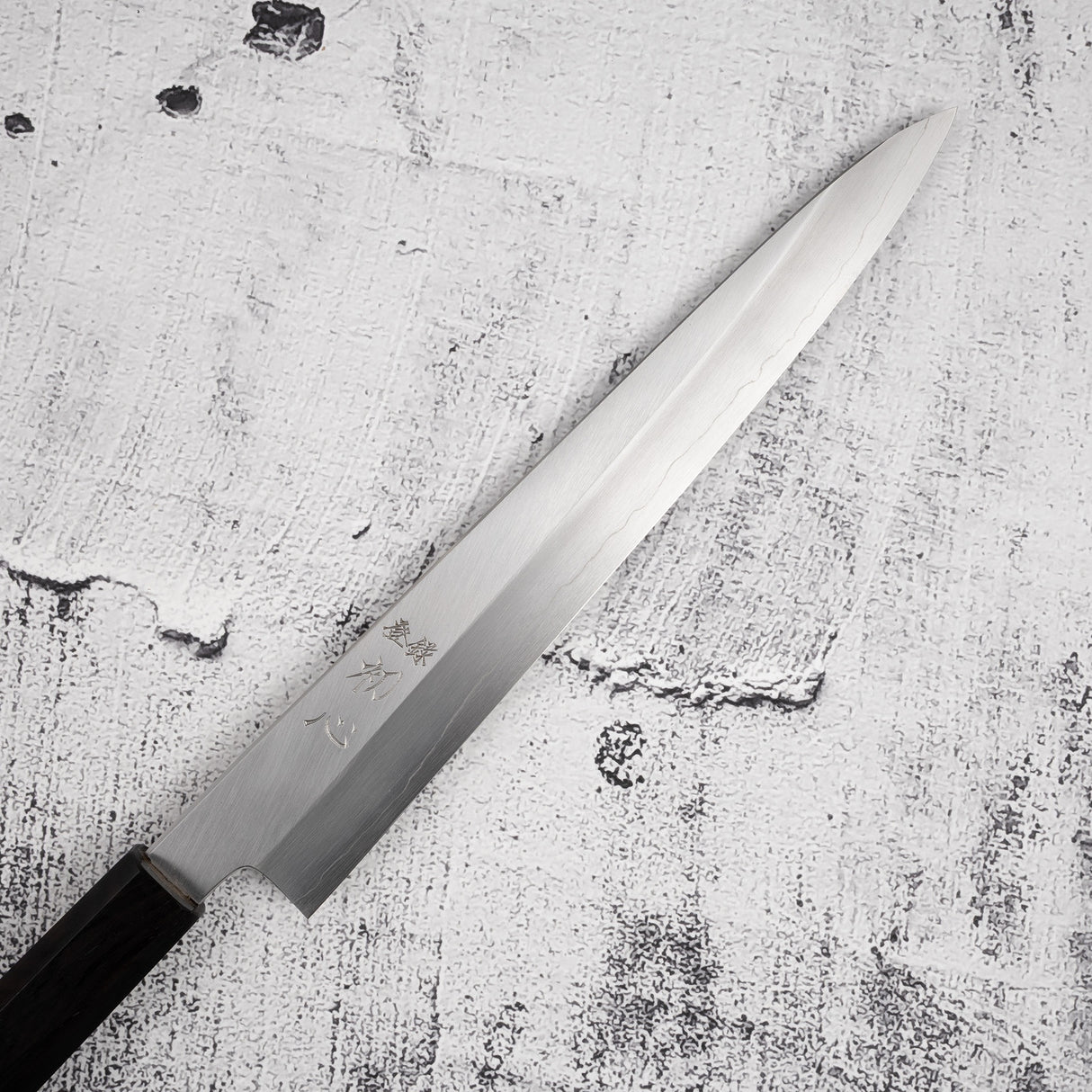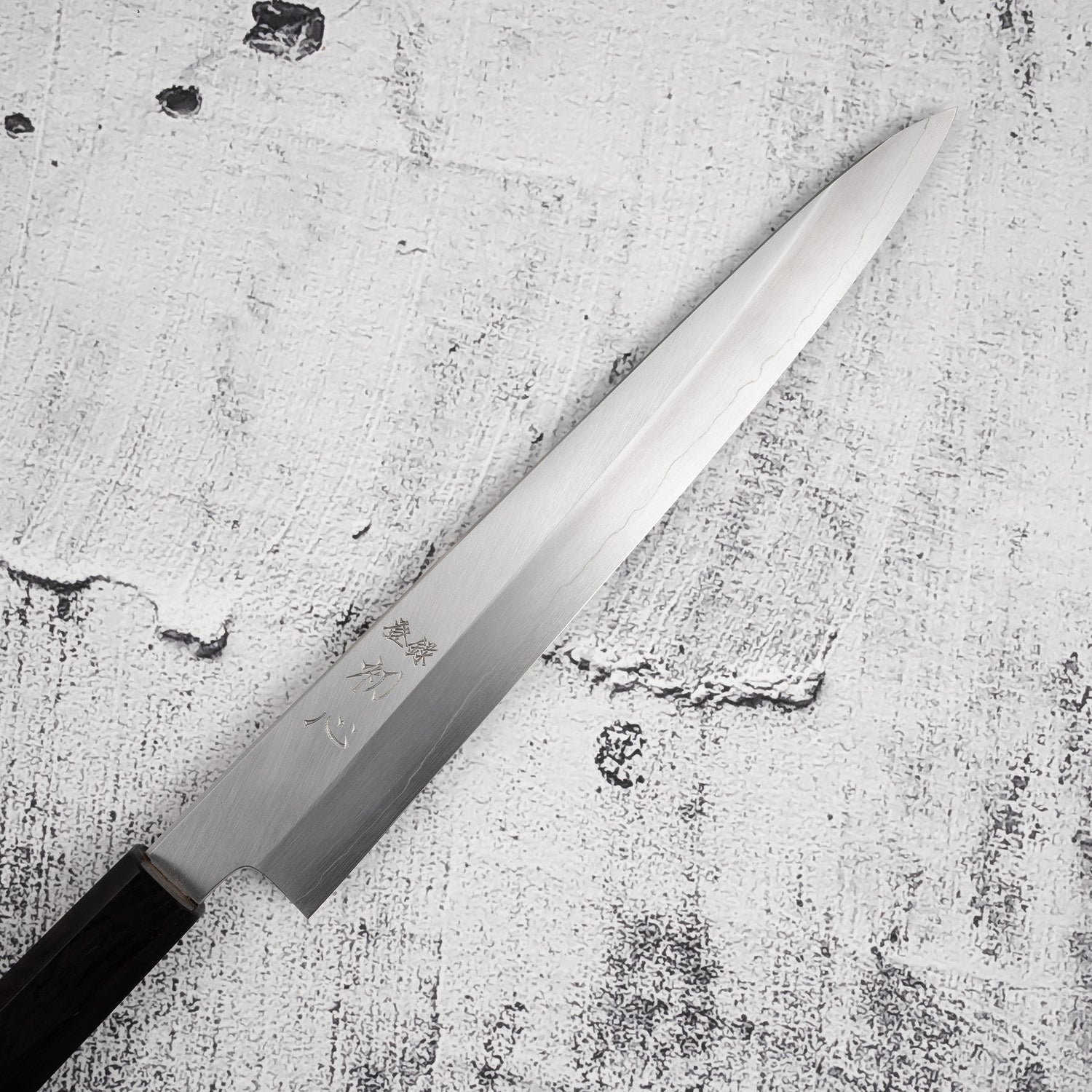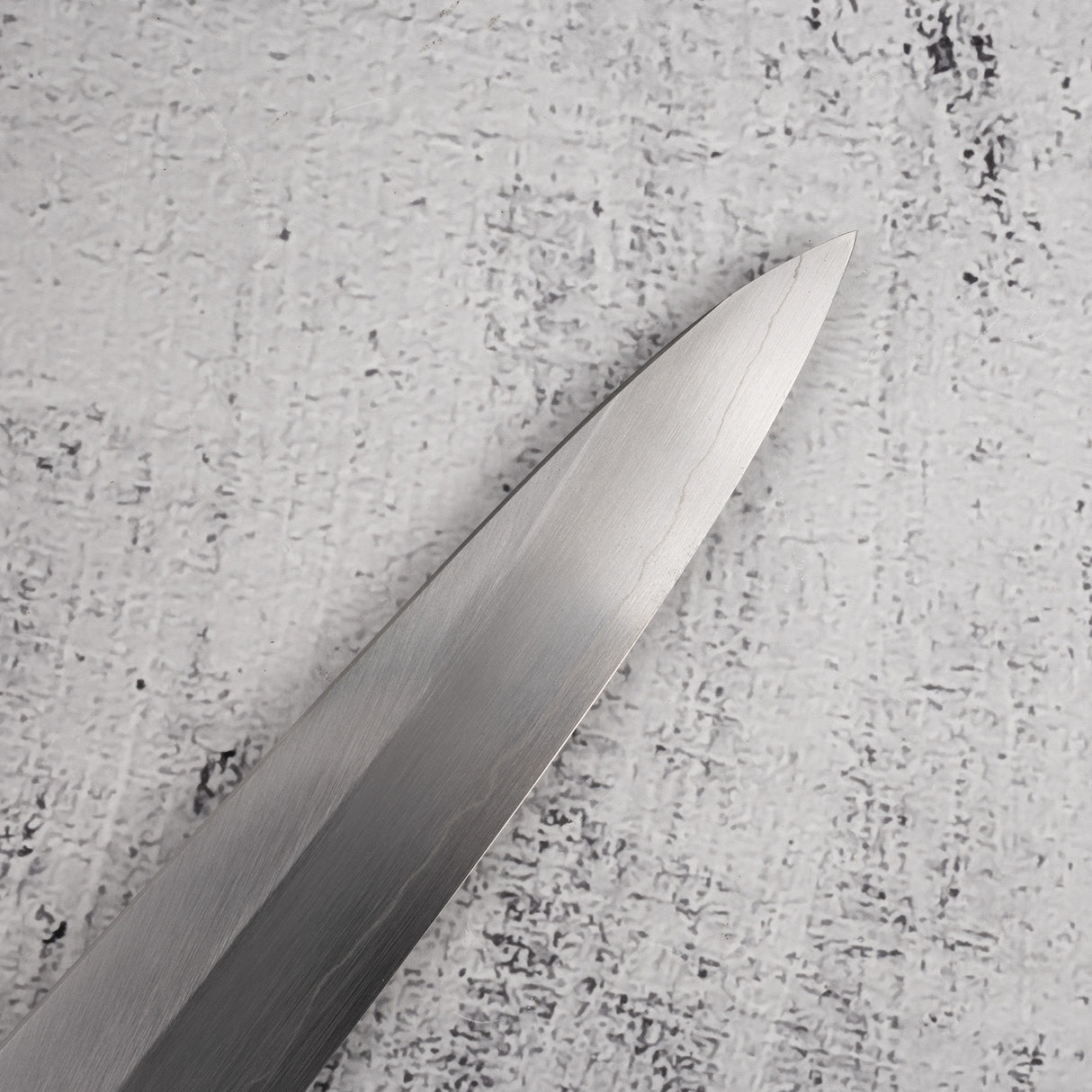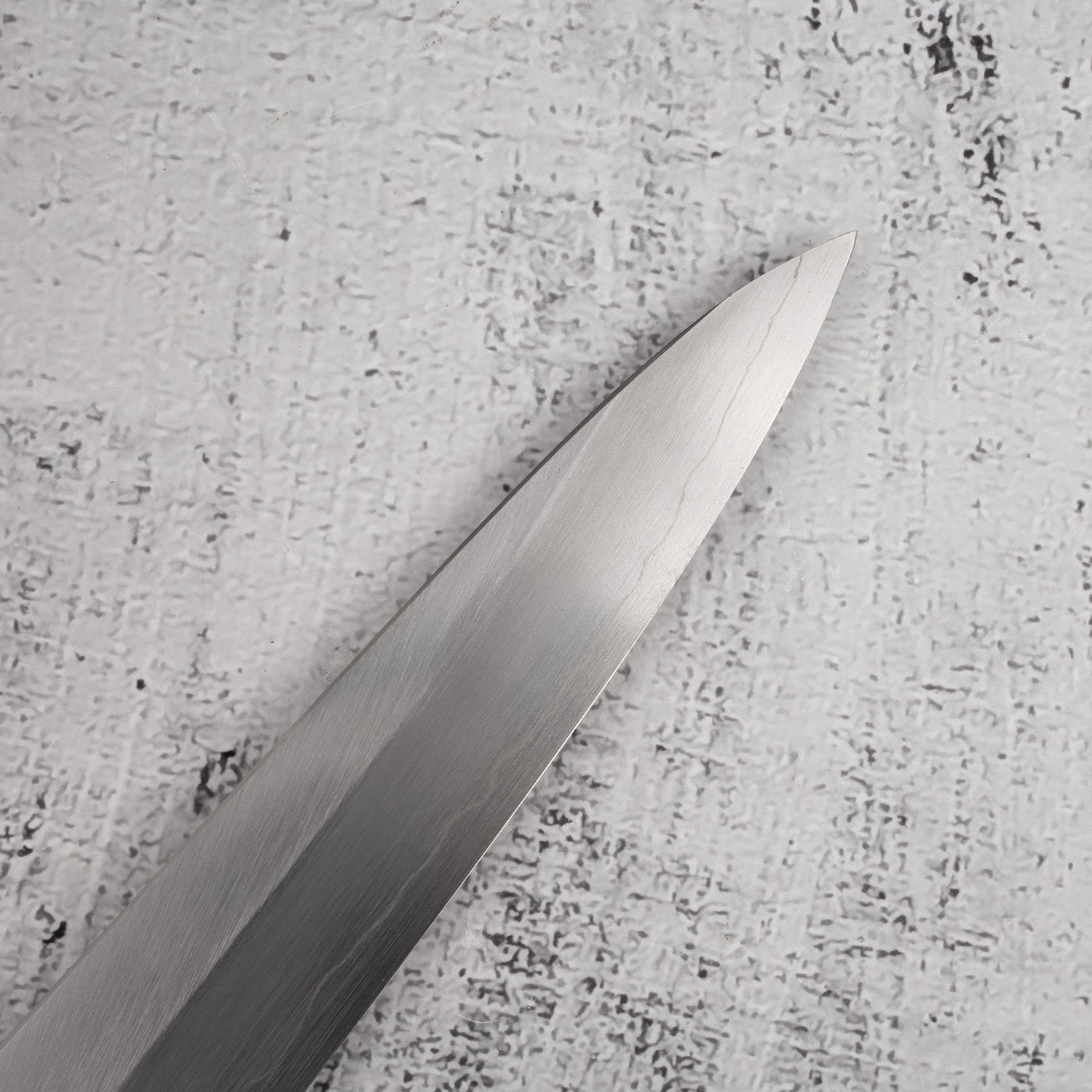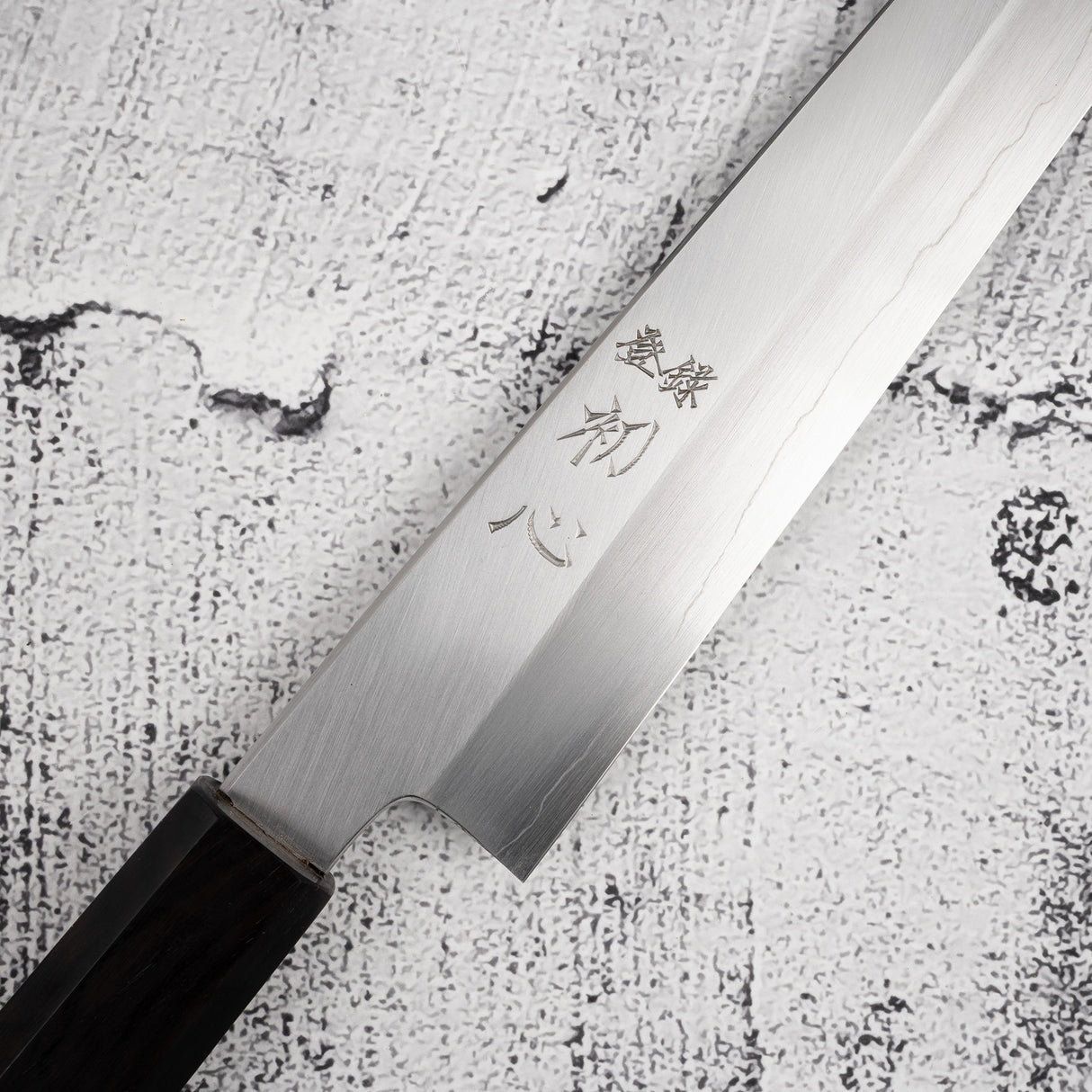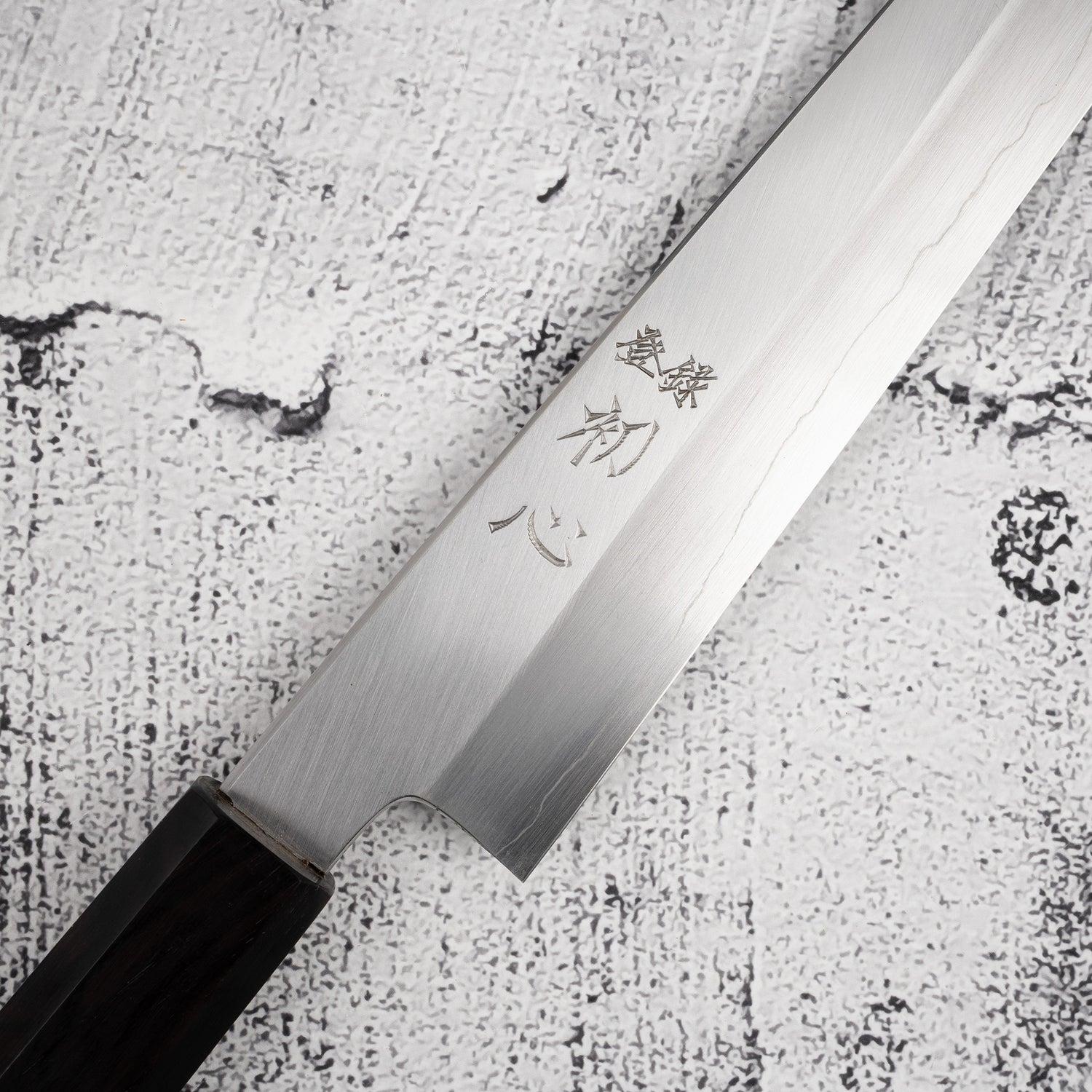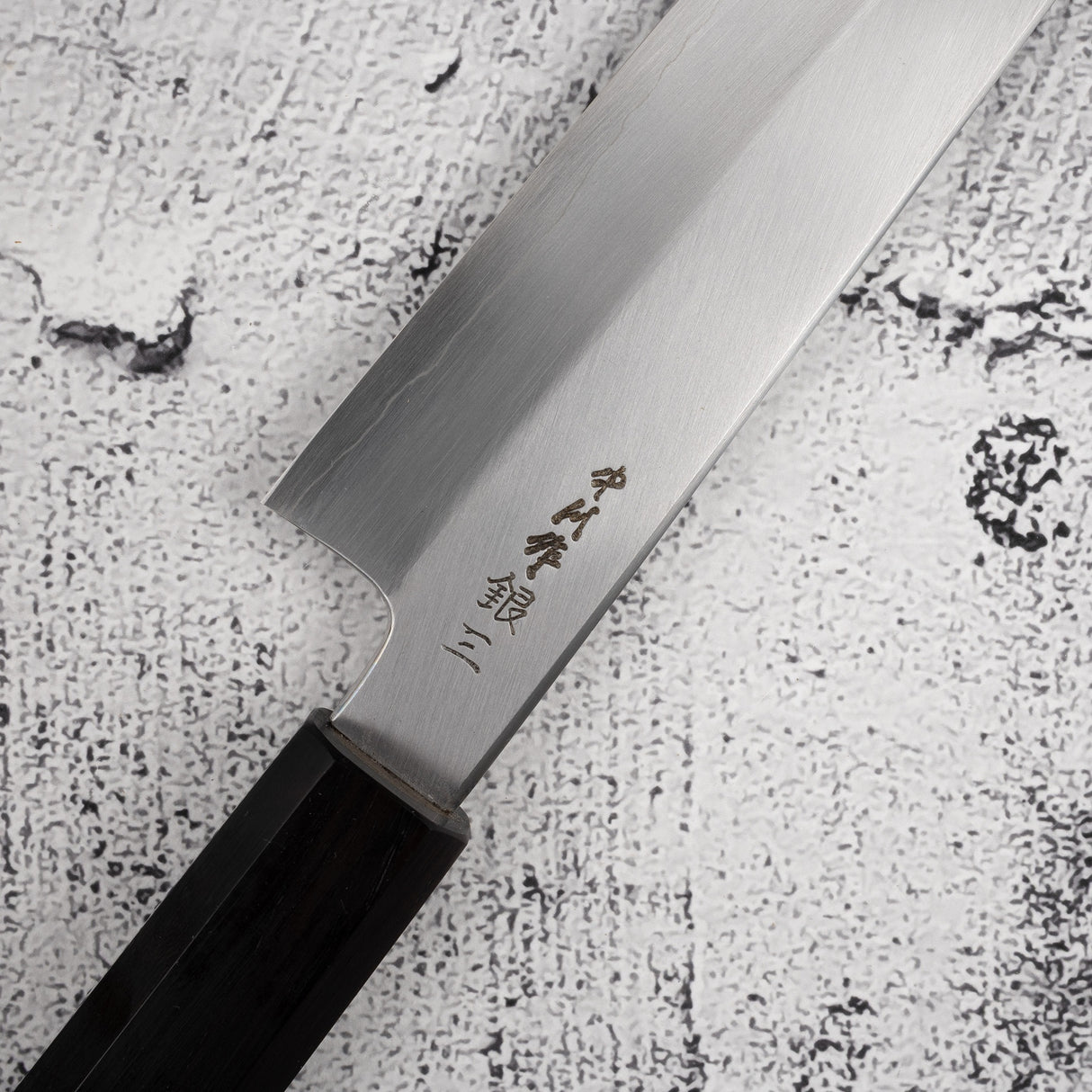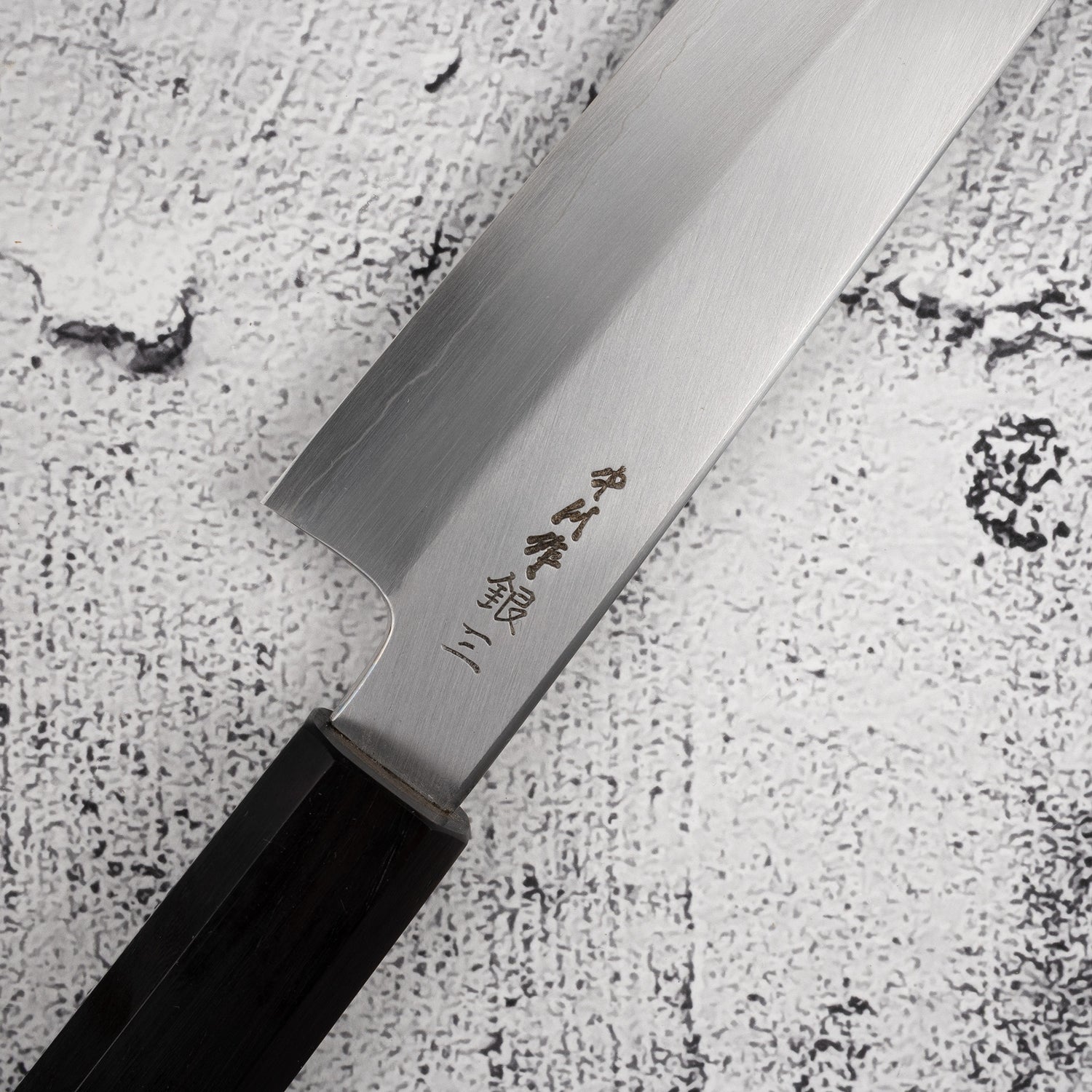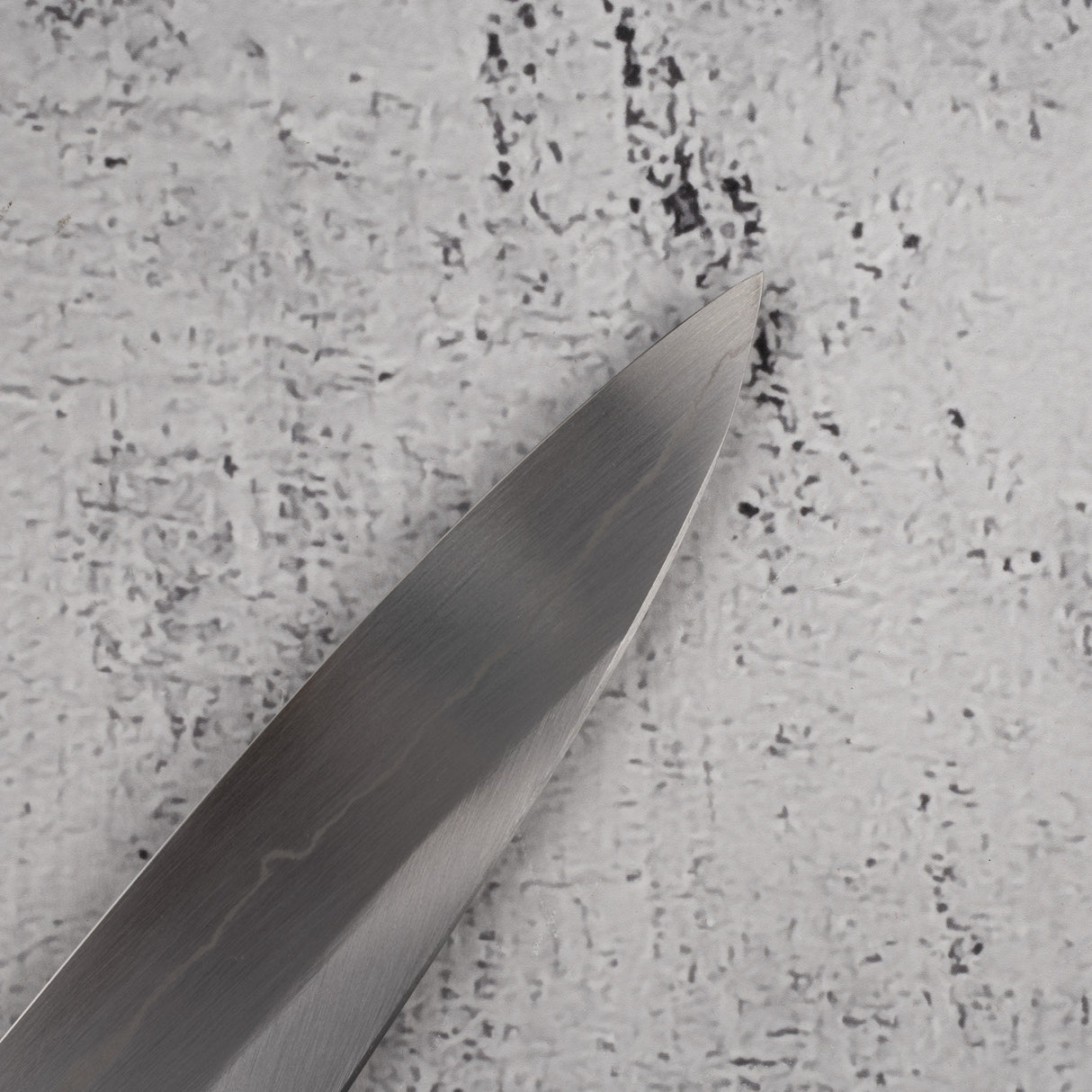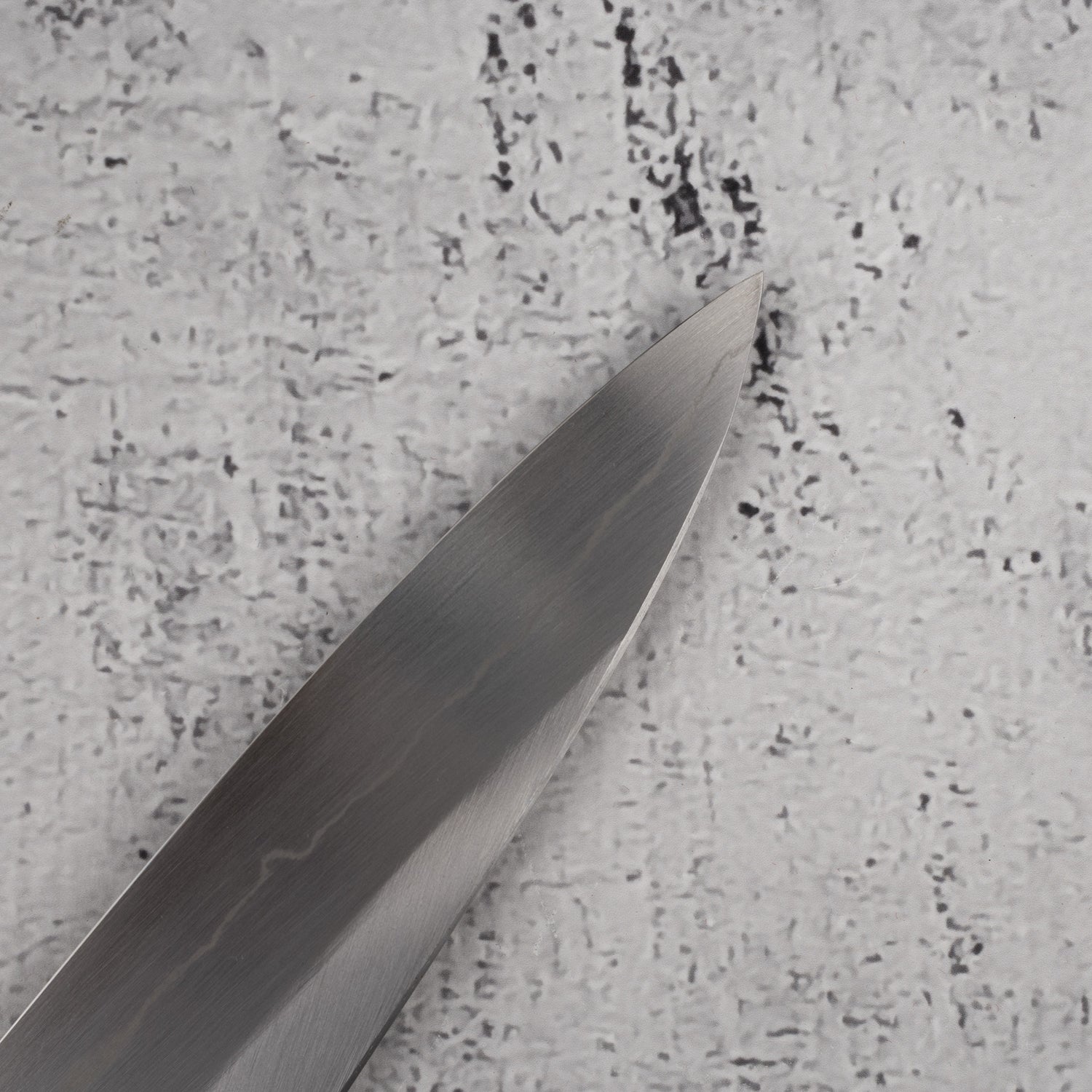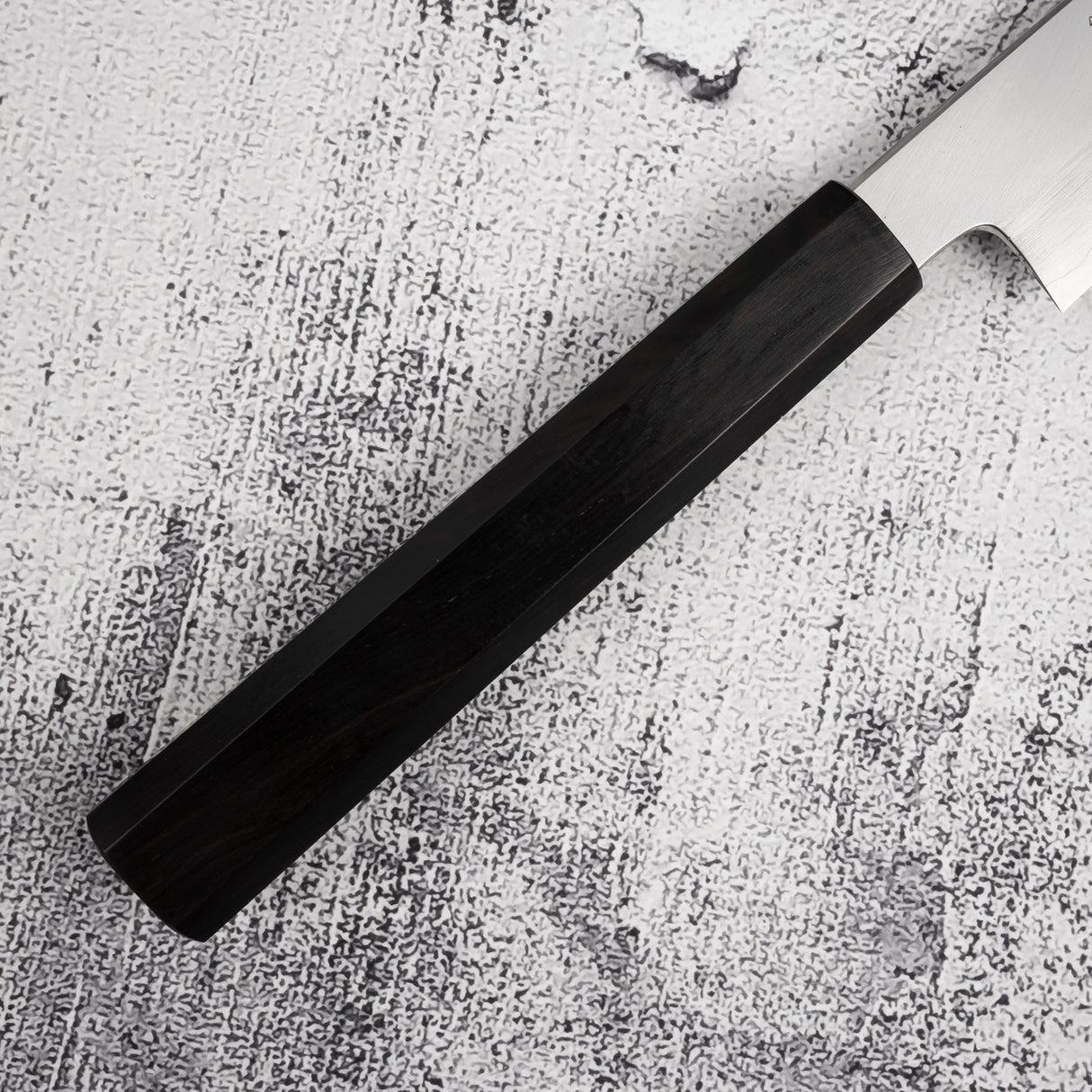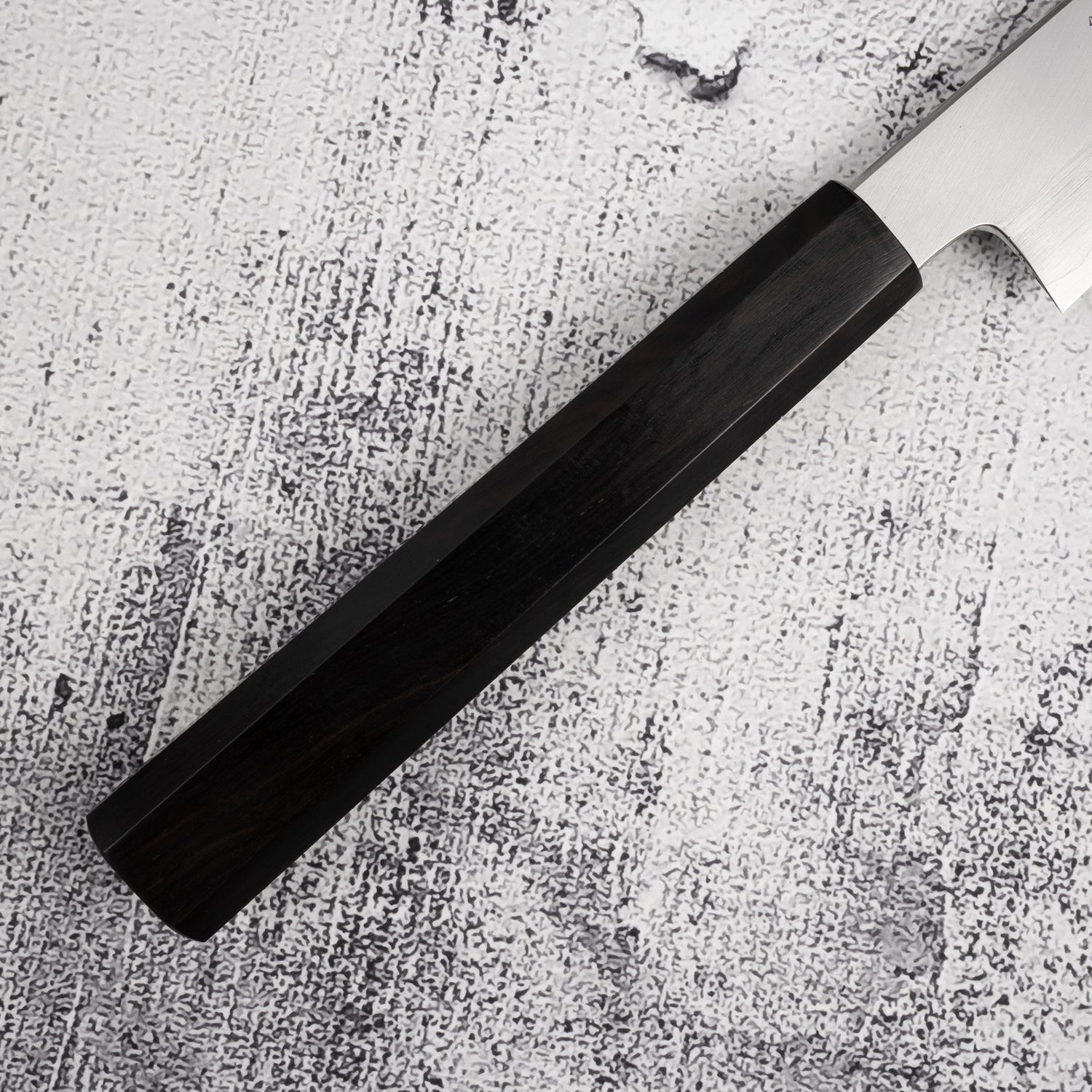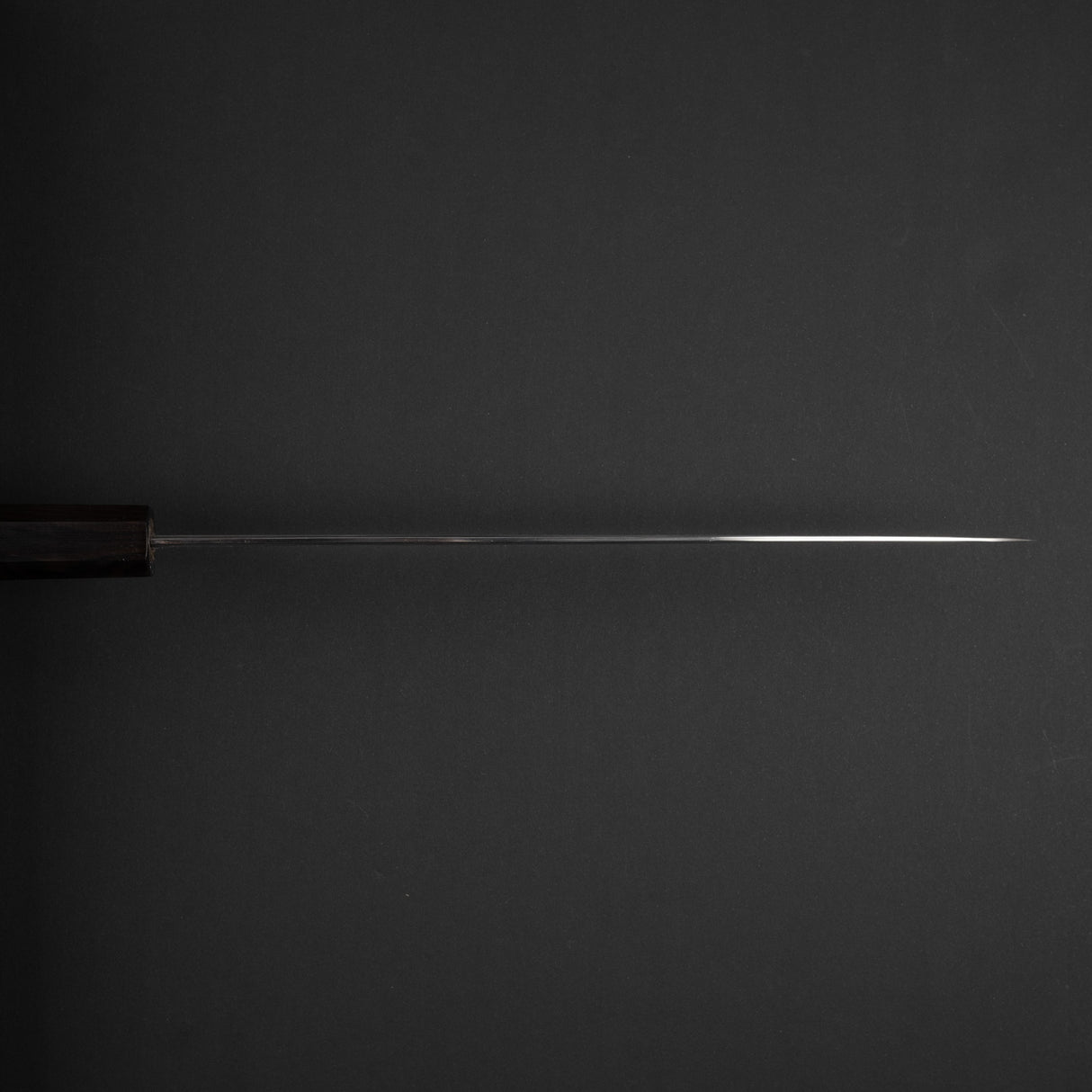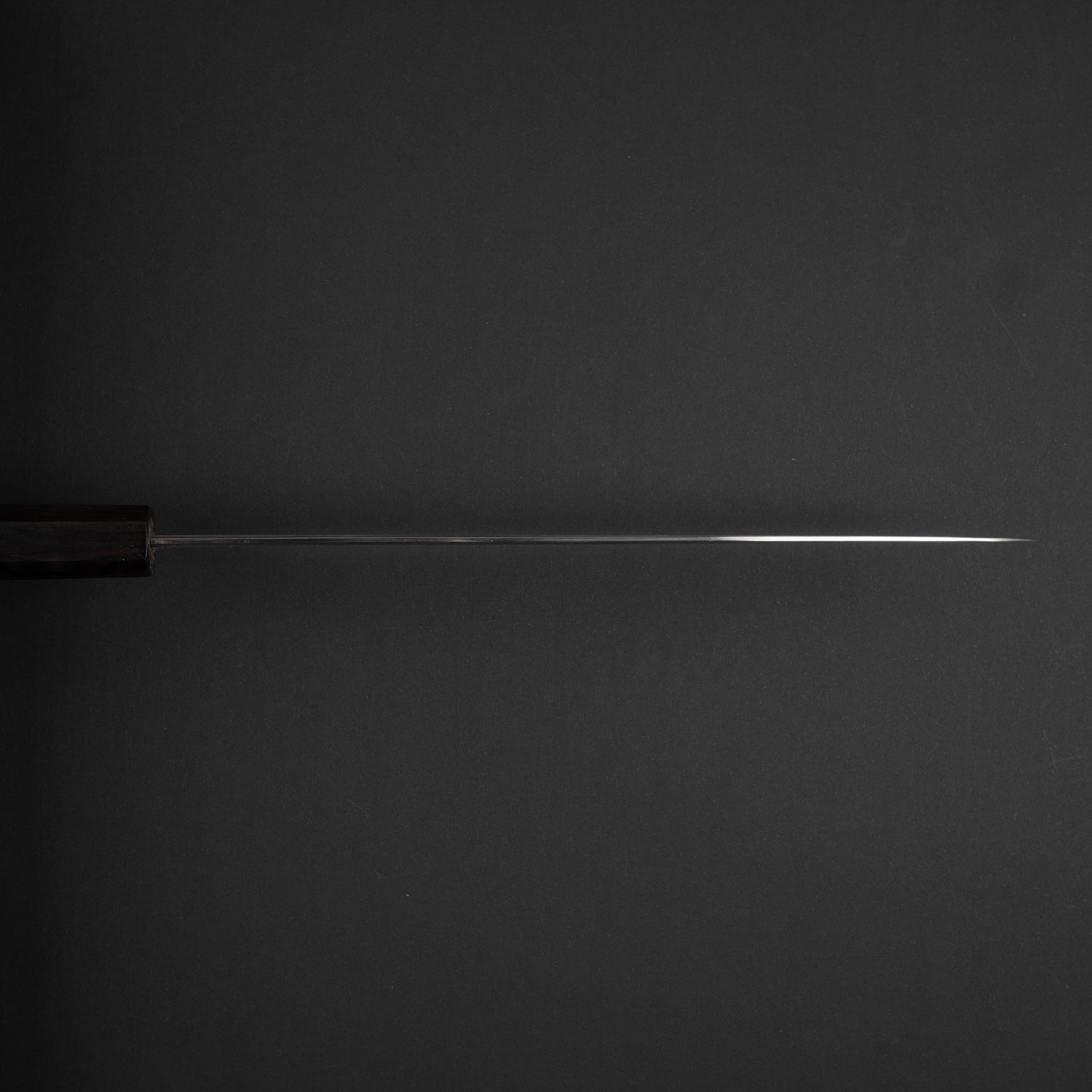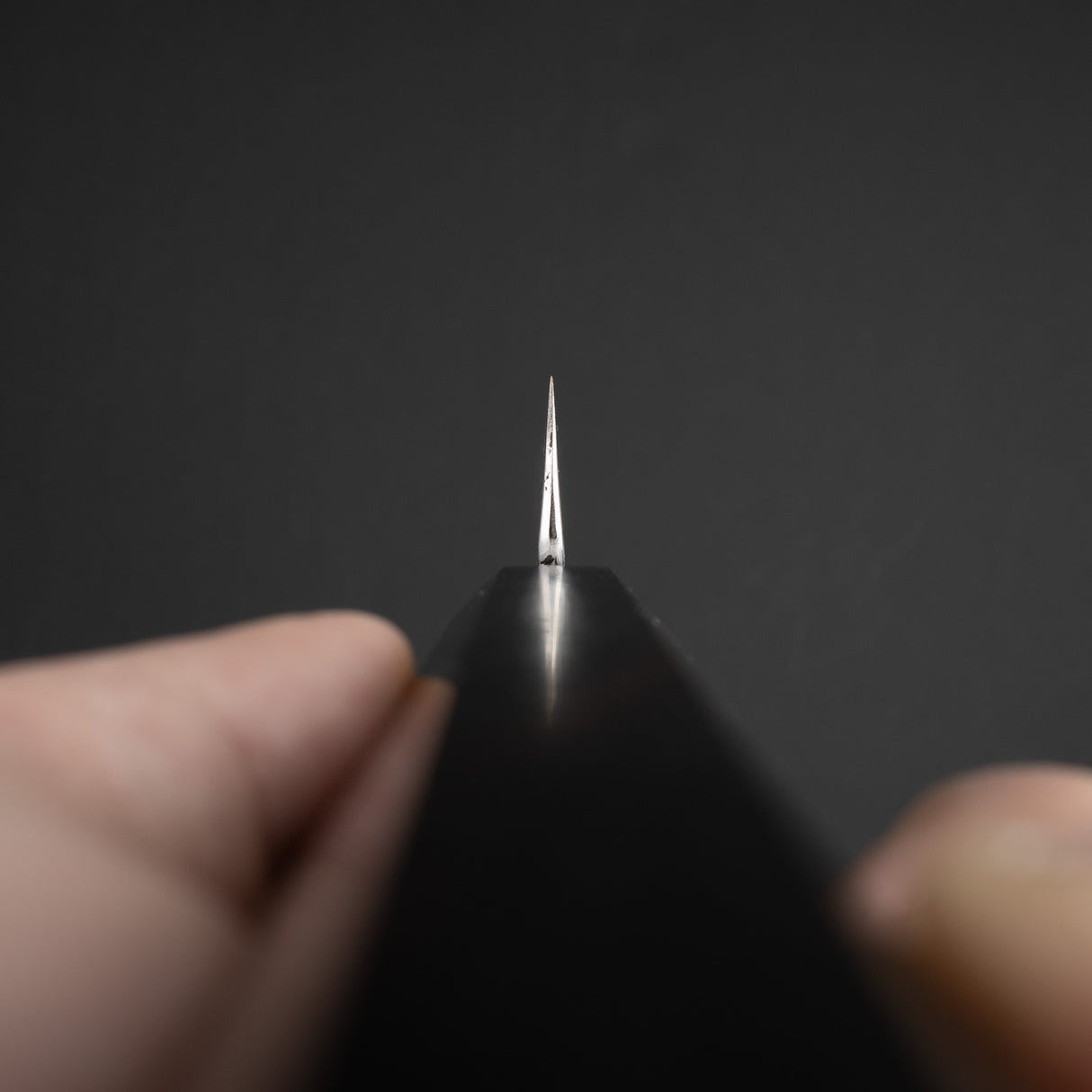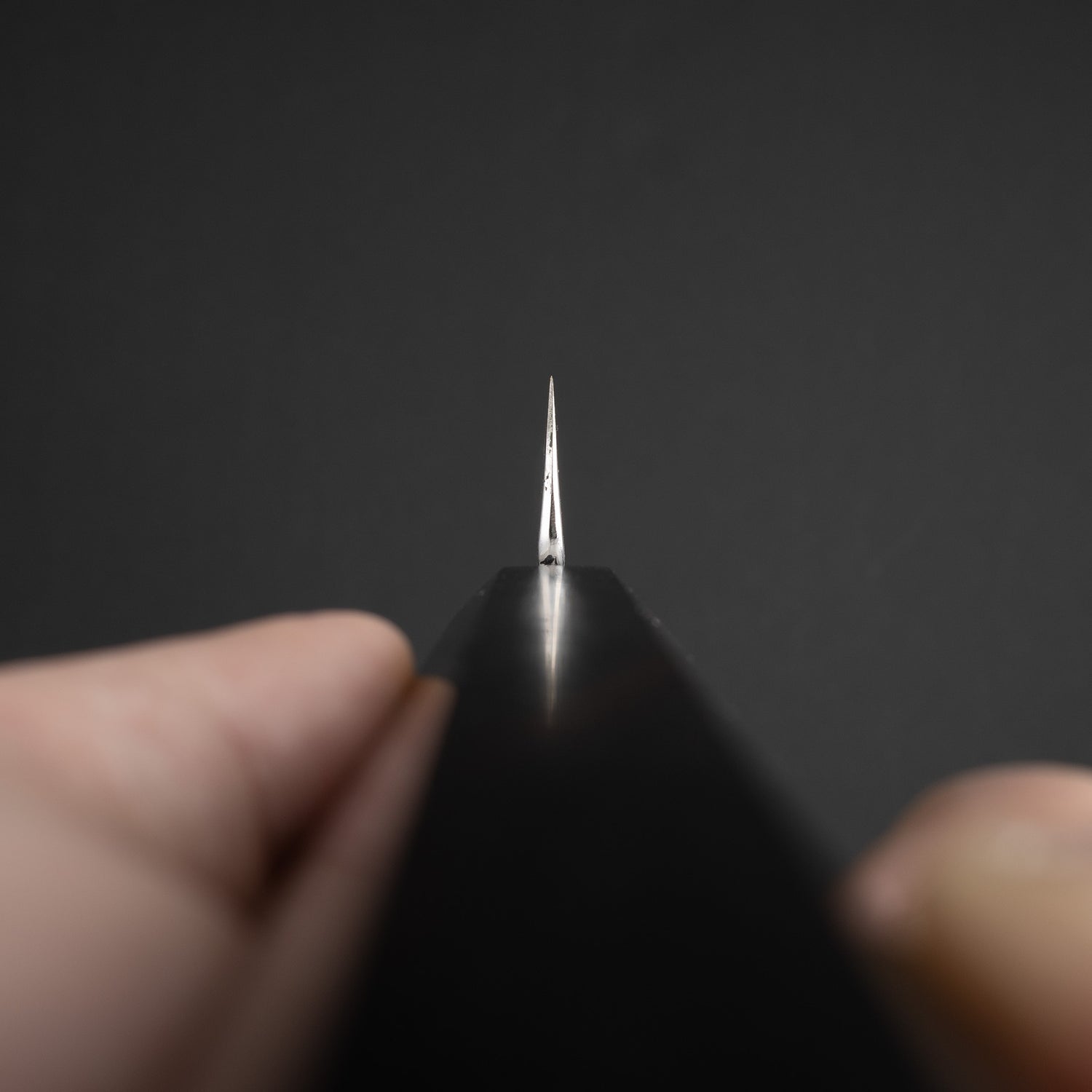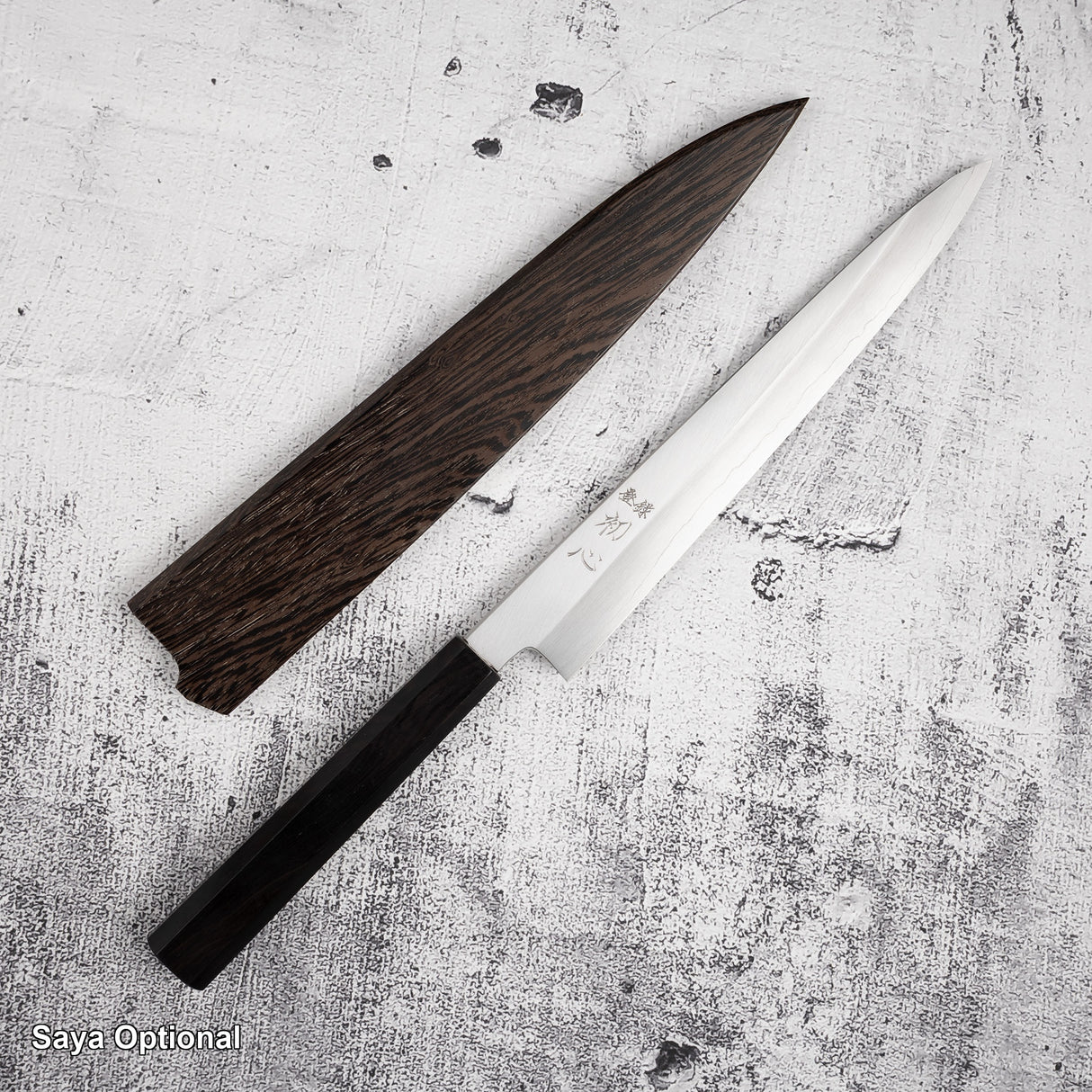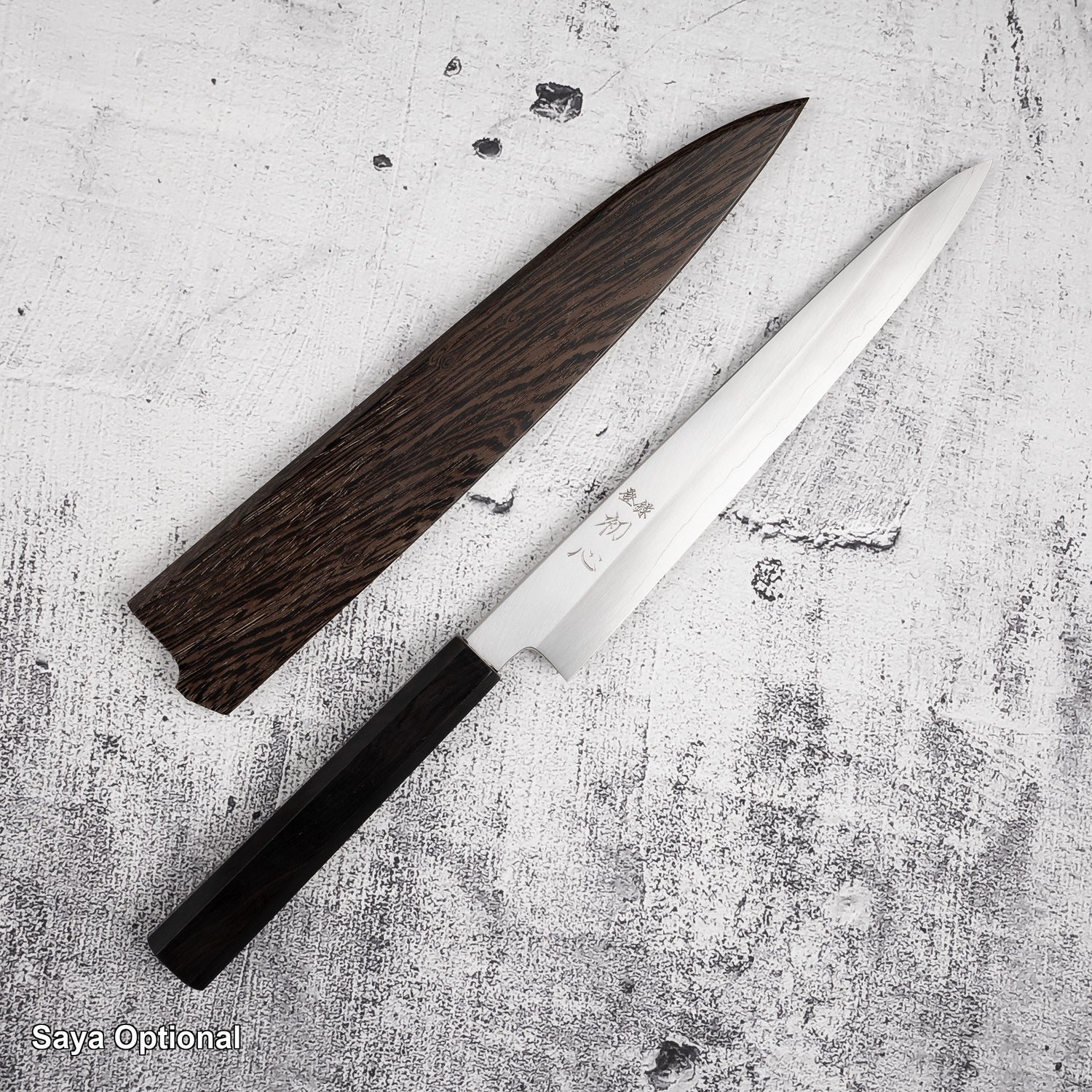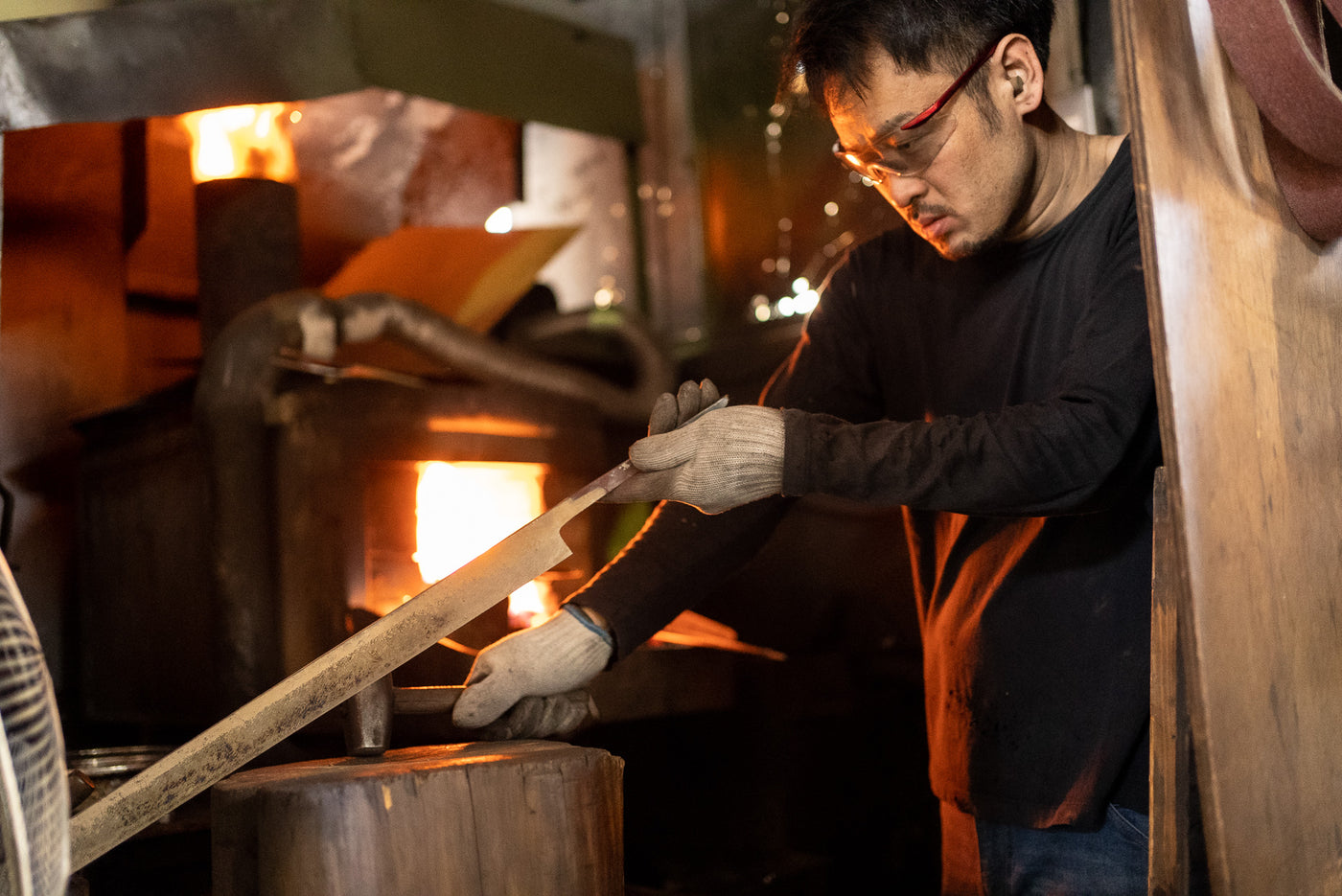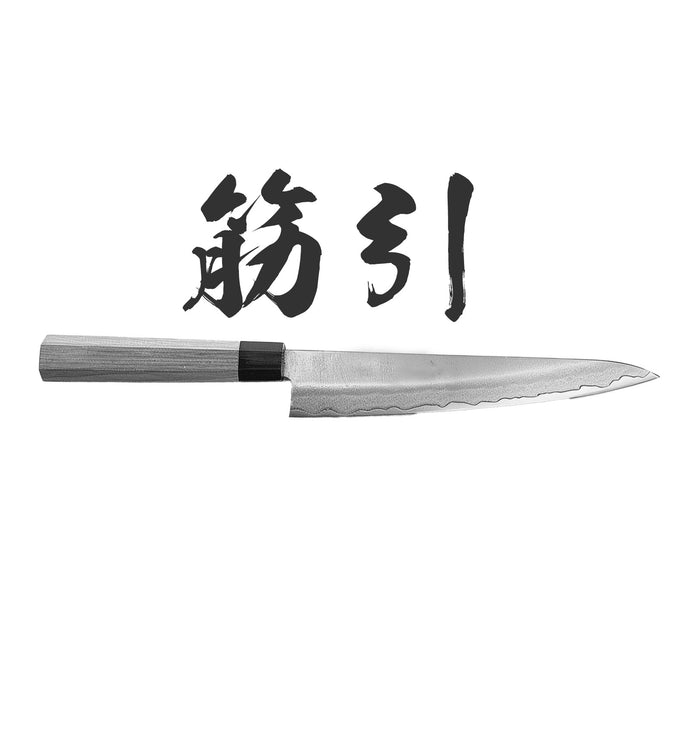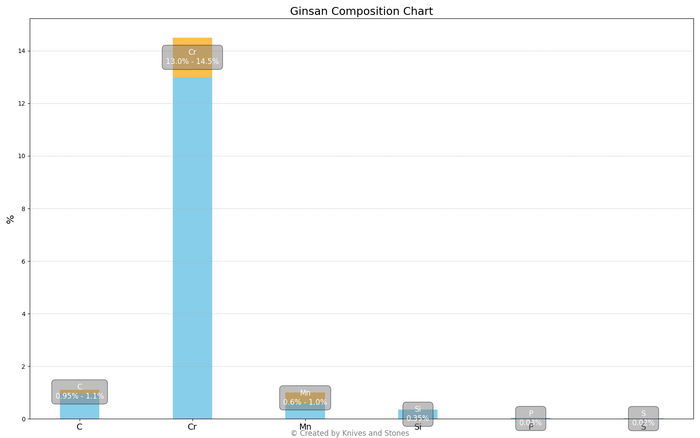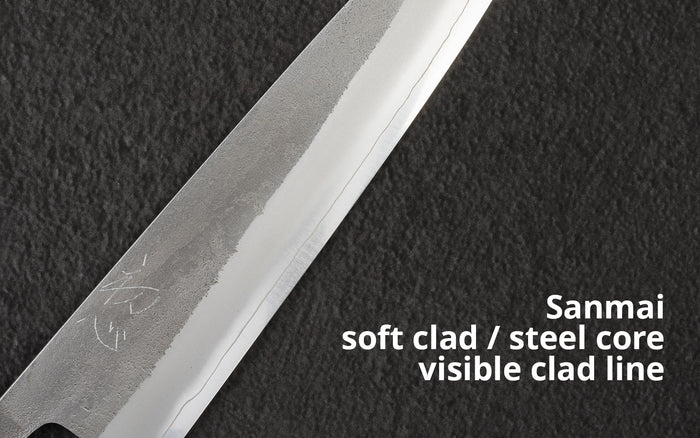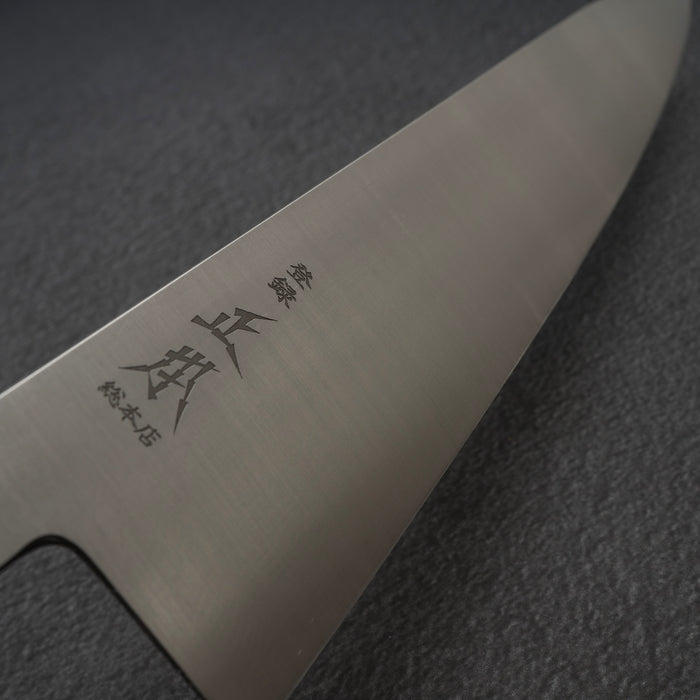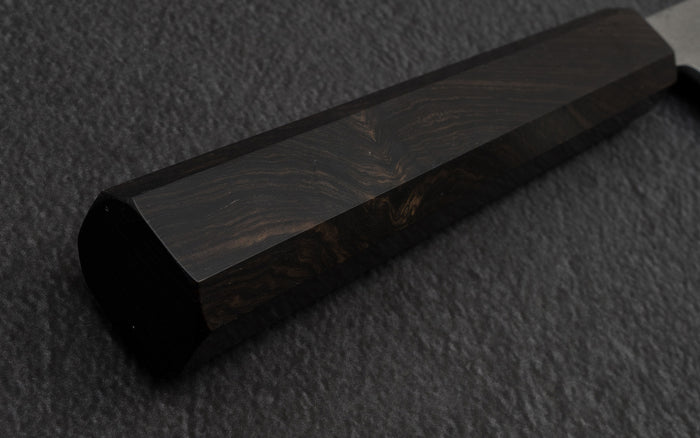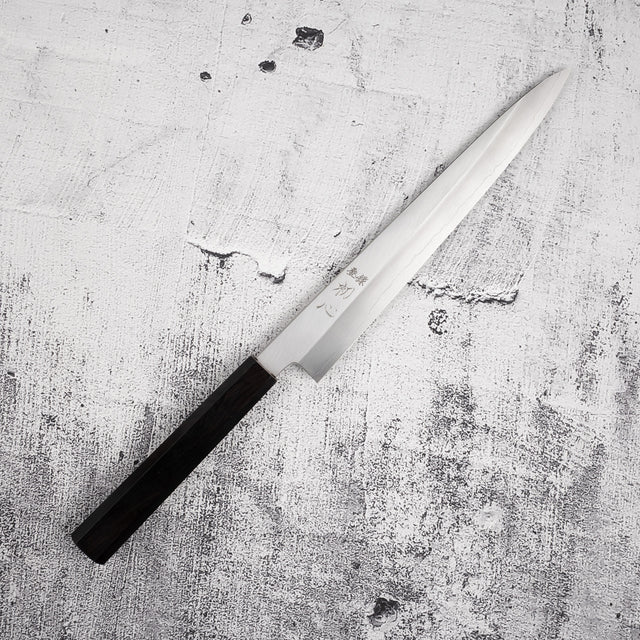Nakagawa Hamono | SKU:
NAKA_G3KA_SU240EB
Nakagawa Ginsan Kasumi Finish Sujihiki 240mm Ebony
Regular price
$549.95
Unit price
/
Unavailable
Nakagawa Ginsan Kasumi Finish Sujihiki 240mm Ebony is backordered and will ship as soon as it is back in stock.
Couldn't load pickup availability
Detailed Specifications
| Line | Hatsukokoro By Nakagawa Ginsan Wide Bevel Kasumi |
| Profile | Sujihiki / Slicer |
| Bevel Type | Double Bevel |
| Weight | 165 g | 5.8 oz |
| Edge Length | 230 mm | 9 1/16″ |
| Heel Height | 36 mm | 1 27/64″ |
| Width @ Spine | 3.0 mm | 1/8″ |
| Width @ Mid | 2.4 mm | 3/32″ |
| Width @ 1cm from Tip | 1.0 mm | 3/64″ |
| Steel | Ginsan / Silver #3 | Stainless |
| Blade Construction | Sanmai - Stainless Clad |
| Hardness (HRC) | 60 - 62 |
| Surface Finish | Migaki |
| Handle | Octagonal Ebony |
| Region | Sakai |
| Best for |
|

| Pros | Cons |
|
|
|
Care Instruction
- Don't cut hard things! Japanese knives are brittle so bone hacking is a NO NO!
- Wash with neutral detergent after use, and wipe dry;
- Please don't wash knife with dishwasher, it will damage the wood handle;
- Be careful not to leave the knife close to a heat source for a long time;
- It is a lot more dangerous to cut with a blunt knife than a sharp knife!
- It is best to sharpen a Japanese knife regularly on a waterstone.

